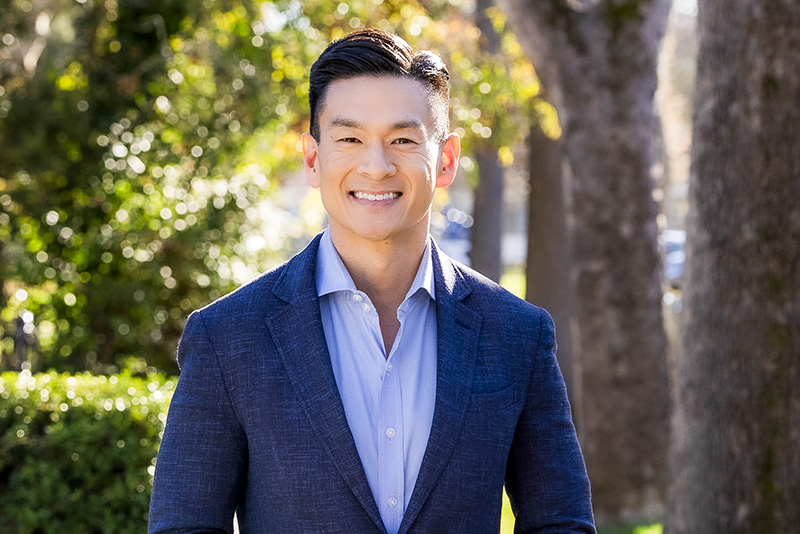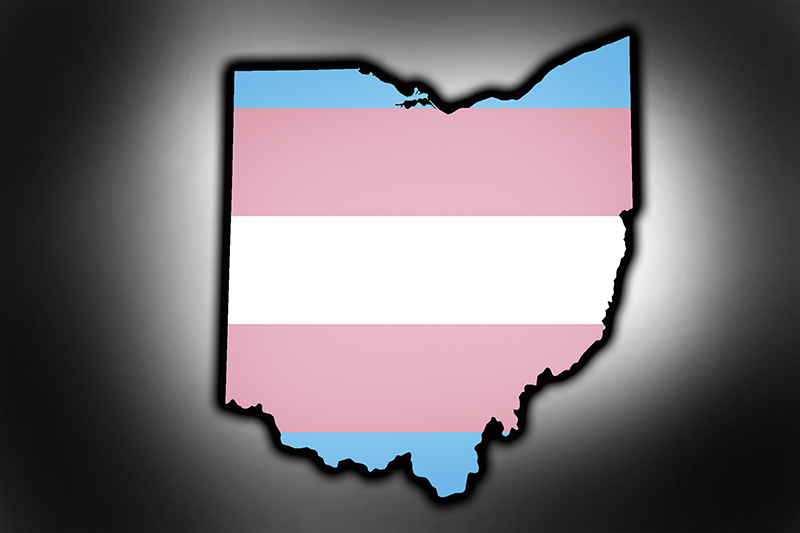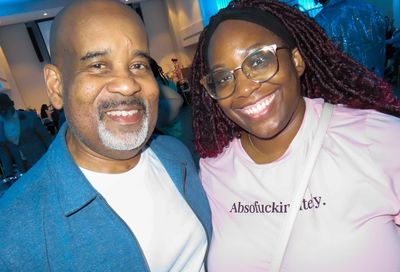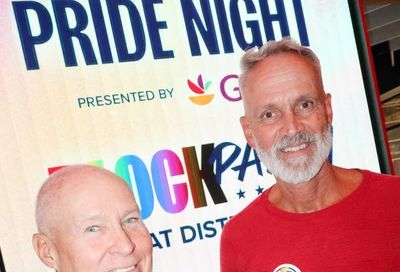Why Trans Rights Are Under Attack
NCTE Executive Director Rodrigo Heng-Lehtinen reflects on the state of transgender rights and the push to change hearts and minds.


“I think that the reason there is so much fervor against trans people, and specifically transgender youth right now is because the opposition is deliberately taking advantage of the public’s lack of familiarity with them,” says Rodrigo Heng-Lethinen, executive director of the National Center for Transgender Equality, which is celebrating 20 years with a gala on Oct. 27.
“Most Americans do not think they know someone who is transgender. We’re maybe one percent of the population. That’s a tiny community. So just by sheer numbers, you can understand why most Americans don’t realize or don’t think they know someone who is trans,” Heng-Lethinen continues.
“And even if they do, that person may not have disclosed [their identity] to them. Without the media accurately portraying who we are, without our stories being told, they have no clue who we are.”
It’s that lack of familiarity, Heng-Lehtinen says, that allows anti-transgender activists to easily spread misinformation or outright distortions to a public that can’t instinctively point out the flaws in their arguments or any inconsistencies.
Particularly in recent years, anti-transgender forces have been all too willing to exploit that lack of understanding to their advantage as they attempt to gather support for their actions. Whether it’s pushing nearly 500 bills through state legislatures seeking to restrict transgender rights, pushing through administrative policies or regulations that target transgender visibility, or railing against books or school curricula that acknowledge transgender identity, it’s en vogue, particularly in right-wing circles, to cast transgender people as the boogeyman.
Noting that the chief proponents of anti-transgender legislation have previously opposed protections or advances in gay and lesbian rights, Heng-Lehtinen accuses anti-trans activists of seeking to impose their will on others.
“These anti-LGBTQ ideologues want to control how people act and dress and look,” he says. “They want people to have an idea of how everyone is supposed to behave. Transgender people are the ultimate violators of that world order.
“To change your gender, it almost offends these ideologues because it’s such a dramatic break in convention, and it’s such a visible breaking of the social order. So I think that’s the second reason why transgender youth are in the crosshairs so much — the reason there’s all these anti-trans bills — is that transgender people color outside the lines too much. And quite honestly, that freaks them out.”
Heng-Lehtinen suggests that the increase in anti-transgender rhetoric and policy — which social conservatives have not only embraced but encouraged, could also be a response to the progress the transgender community has enjoyed in recent years.
“Paradoxically, I think the attacks are escalating because it is a backlash to our progress,” he says. “Twenty years ago, when NCTE was founded, the overwhelming majority of the American public did not even know what it meant to be transgender, beyond the punchline of a joke.
“Now, our issues may be controversial, but that is, believe it or not, progress. That means some people in the wider public are on our side, when they never were before. We have made such advances in public education, in humanizing transgender people to the public, that acceptance has started to go up. And that has enraged our opposition.”
Much of the opposition to transgender rights and transgender visibility has been couched in terms of “parental rights,” focusing primarily on the desire of conservative parents to censor information about the topic from their children.
Wary of being attacked or accused of “grooming” youth, many policymakers have gone out of their way to require schools to “out” transgender children prematurely to their parents, to bar transgender individuals from certain facilities, clubs, or teams, and to remove or censor books or school curricula that acknowledge gender identity as real — even materials that approach such information in a viewpoint-neutral or academic way, such as science, sex education, or psychology books.
Heng-Lehtinen says that parents of trans-identifying children who choose to be supportive are often ignored in those arguments. They can have their “parental rights” disregarded if school administrators, teachers, or state lawmakers disagree with their parenting decisions.
“These anti-trans laws try to impose sweeping, one-size-fits-all rules that no trans kids should be able to access health care, or that no teachers should be required to treat their students with respect,” he says. “And that erases a parent who does love and support their transgender child, from being able to take their kid to a doctor who will treat them right. The opposition is crying about ‘parental rights,’ but they ignore parents who love and support their kids.”
Heng-Lehtinen argues that anti-trans opponents have deliberately misrepresented gender-affirming care in order to pass laws prohibiting minors from accessing such treatments.
“The inaccurate thing we hear the most is that doctors are having kids do full medical transitions at really young ages, without scrutiny,” he says. “The reality is that there are age-appropriate guidelines for this type of health care. There are detailed medical guidelines that have been well-researched and are updated regularly, that stagger out the different ages. By no stretch of the imagination is a nine-year-old patient treated the same as a 19-year-old adult. There’s no universe in which that happens.”
Additionally, Heng-Lehtinen claims gender-affirming medications have been studied for decades and are not “experimental,” even for “off-label” use, and doctors only prescribe them based on each patient’s individual needs.
Those treatments have also been endorsed by major medical organizations, including the American Medical Association, the American Psychological Association, and the American Academy of Pediatrics.
“There’s tons of misinformation out there, and it’s really, really critical that we get the facts out there, even within our own community. Because if you are not trans, it’s understandable that you wouldn’t be an expert on transition-related health care. This is a new topic for most people, including LGBTQ people,” he says.
Heng-Lehtinen warns that some progressive allies and LGBTQ people may seek to lay blame at the feet of the transgender community for any electoral losses by LGBTQ-supportive candidates in upcoming election cycles.
“I agree that scapegoating does happen,” he says. “There is a consistent track record that when progressive candidates or candidates who speak out about social justice or social issues lose, marginalized communities get blamed.
“Of course, we will do everything we can, as the NCTE Action Fund, to re-elect President Biden in 2024 and support other candidates. But if any candidate on our side loses — whether it’s the presidency or people we’ve endorsed in congressional races — we have to be ready to respond to that.
“And my response is that, in the final analysis, the truth is that voters do not prioritize attacking LGBTQ people, even voters who say, ‘I don’t know about trans kids accessing health care, that makes me uneasy.’ Even those voters, when you ask them, ‘What do you care about?’, they say inflation. They say the rising cost of housing. They say school shootings. They say teacher shortages. They care about a whole lot of other things much, much more than they care about attacking trans kids.”
Heng-Lehtinen believes the larger equality movement will ultimately be successful by changing hearts and minds.
“Right now, most people still don’t think they know someone who is trans. We are an abstract concept more than a human being,” he says. “We as LGBTQ people won on the issue of marriage equality when a critical mass of suburban parents realized one of their kids could be gay, that ‘light bulb’ moment of ‘This could be my family. These are people I care about.’ We have to get down to that really fundamental human level.
“Things like access to health care become a lot more politically palatable when it feels like this is affecting real human beings, not an abstract concept. We, as advocates, need to keep sharing our stories and educating the public, and that’s what’s going to turn the tide back our way again. So a year from now, we are still going to be facing a lot of these attacks, but we’re going to have many more activists and allies on the ground fighting back.”
Reflecting on NCTE’s past two decades of advocacy, Heng-Lehtinen marvels at how quickly attitudes have changed.
“When NCTE was founded in 2003, lawmakers literally would not even take a meeting with NCTE because the word ‘transgender’ was in the name,” he says. “In order to nevertheless secure some rights for trans people, we had to make things really private. We had to meet behind the scenes, literally behind closed doors, and keep our work almost secret so that politicians could hear us out without getting backlash.
“We used to have this shroud of secrecy over us, and it was unfortunate to have to hide the work that we did. But it was also heartbreaking, because it was a reflection of the discrimination that transgender people were facing in general. Now, we can be a lot more bold. Now, we don’t have to hide in the shadows anymore.”
Support Metro Weekly’s Journalism
These are challenging times for news organizations. And yet it’s crucial we stay active and provide vital resources and information to both our local readers and the world. So won’t you please take a moment and consider supporting Metro Weekly with a membership? For as little as $5 a month, you can help ensure Metro Weekly magazine and MetroWeekly.com remain free, viable resources as we provide the best, most diverse, culturally-resonant LGBTQ coverage in both the D.C. region and around the world. Memberships come with exclusive perks and discounts, your own personal digital delivery of each week’s magazine (and an archive), access to our Member's Lounge when it launches this fall, and exclusive members-only items like Metro Weekly Membership Mugs and Tote Bags! Check out all our membership levels here and please join us today!




























You must be logged in to post a comment.